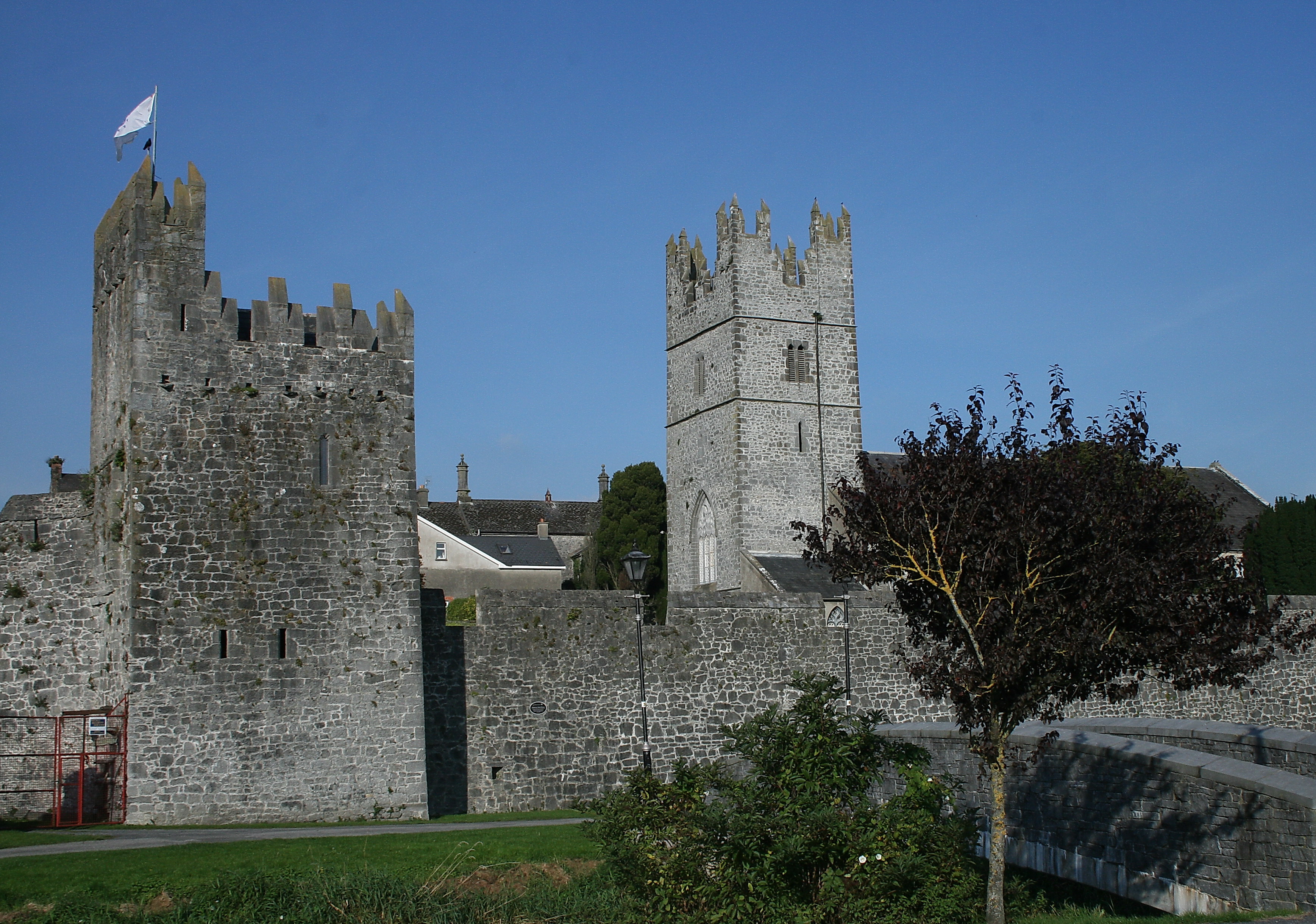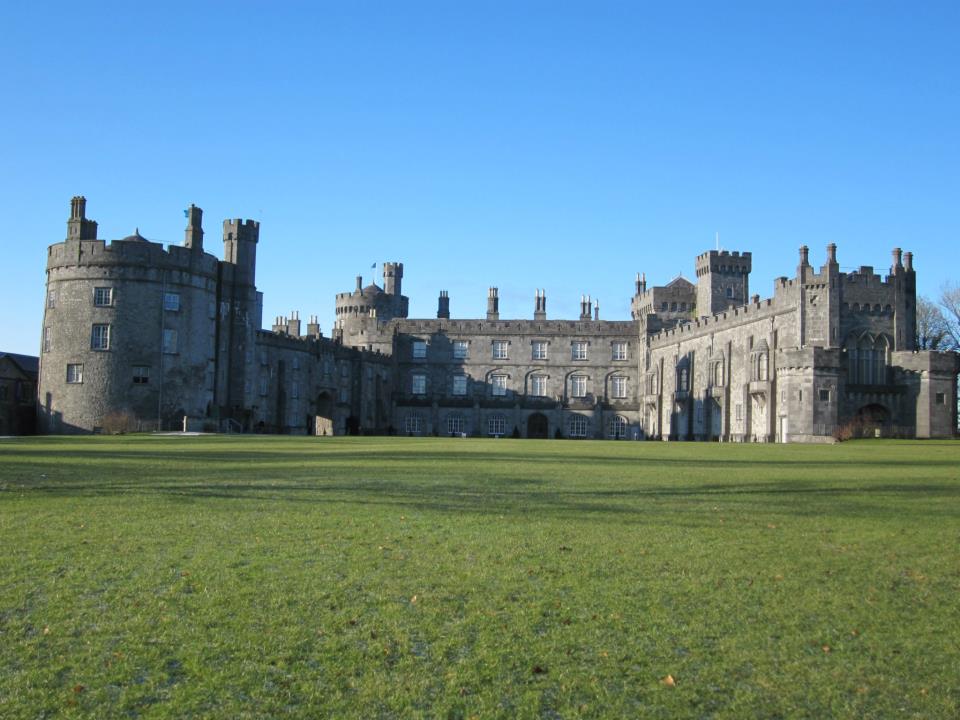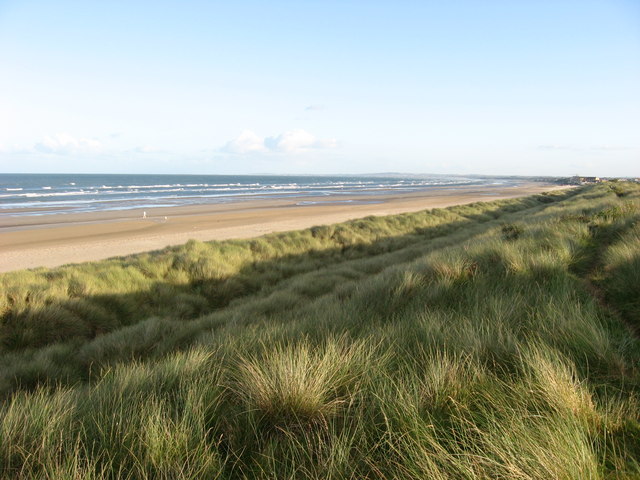|
John Everard (MP)
Sir John Everard ( – 1624) was an Irish barrister, politician and judge. He was notable as the last Irish judge until the reign of James II to openly profess the Roman Catholic faith. His religious beliefs eventually led to his enforced resignation from the Bench in 1607. He then entered politics and was a member of the Irish Parliament of 1613–1615. The Catholic members elected him as speaker of the House of Commons and installed him in the speaker's chair, but due to the creation of new pocket boroughs by James I, the Protestants had the majority and elected Sir John Davies. Everard, in a farcical scene, initially refused to vacate the chair until he was literally sat upon, which caused him to fall into disgrace for a time, but he was later restored to royal favour. His second son Sir Richard Everard was created the first of the Everard baronets of Ballyboy. Background He was a native of Fethard, County Tipperary, and was the eldest son of Sir Redmond Everard, he ... [...More Info...] [...Related Items...] OR: [Wikipedia] [Google] [Baidu] |
Barrister
A barrister is a type of lawyer in common law jurisdictions. Barristers mostly specialise in courtroom advocacy and litigation. Their tasks include taking cases in superior courts and tribunals, drafting legal pleadings, researching law and giving expert legal opinions. Barristers are distinguished from both solicitors and chartered legal executives, who have more direct access to clients, and may do transactional legal work. It is mainly barristers who are appointed as judges, and they are rarely hired by clients directly. In some legal systems, including those of Scotland, South Africa, Scandinavia, Pakistan, India, Bangladesh, and the British Crown dependencies of Jersey, Guernsey and the Isle of Man, the word ''barrister'' is also regarded as an honorific title. In a few jurisdictions, barristers are usually forbidden from "conducting" litigation, and can only act on the instructions of a solicitor, and increasingly - chartered legal executives, who perform tasks such ... [...More Info...] [...Related Items...] OR: [Wikipedia] [Google] [Baidu] |
Court Of King's Bench (Ireland)
The Court of King's Bench (of Queen's Bench when the sovereign was female, and formerly of Chief Place or Chief Pleas) was one of the senior courts of common law in Ireland. It was a mirror of the Court of King's Bench in England. The King's Bench was one of the "Four Courts" which sat in the building in Dublin which is still known as "The Four Courts", and is still in use. Origins According to Elrington Ball,Ball, F. Elrington ''The Judges in Ireland 1221–1921'' John Murray London 1926 the Court called ''the King's Bench'' can be identified as early as 1290. It was fully operational by 1324, headed by the Lord Chief Justice of Ireland, who was assisted by at least one, and often more associate justices, although for brief periods the Chief Justice was forced to sit alone, due to the lack of a suitably qualified colleague. A Statute of 1410 provided that a trial in King's Bench set down for a specific county must proceed there, and must not be moved to another venue w ... [...More Info...] [...Related Items...] OR: [Wikipedia] [Google] [Baidu] |
Bishops
A bishop is an ordained clergy member who is entrusted with a position of authority and oversight in a religious institution. In Christianity, bishops are normally responsible for the governance of dioceses. The role or office of bishop is called episcopacy. Organizationally, several Christian denominations utilize ecclesiastical structures that call for the position of bishops, while other denominations have dispensed with this office, seeing it as a symbol of power. Bishops have also exercised political authority. Traditionally, bishops claim apostolic succession, a direct historical lineage dating back to the original Twelve Apostles or Saint Paul. The bishops are by doctrine understood as those who possess the full priesthood given by Jesus Christ, and therefore may ordain other clergy, including other bishops. A person ordained as a deacon, priest (i.e. presbyter), and then bishop is understood to hold the fullness of the ministerial priesthood, given responsibility by ... [...More Info...] [...Related Items...] OR: [Wikipedia] [Google] [Baidu] |
Protestant
Protestantism is a Christian denomination, branch of Christianity that follows the theological tenets of the Reformation, Protestant Reformation, a movement that began seeking to reform the Catholic Church from within in the 16th century against what its followers perceived to be growing Criticism of the Catholic Church, errors, abuses, and discrepancies within it. Protestantism emphasizes the Christian believer's justification by God in faith alone (') rather than by a combination of faith with good works as in Catholicism; the teaching that Salvation in Christianity, salvation comes by Grace in Christianity, divine grace or "unmerited favor" only ('); the Universal priesthood, priesthood of all faithful believers in the Church; and the ''sola scriptura'' ("scripture alone") that posits the Bible as the sole infallible source of authority for Christian faith and practice. Most Protestants, with the exception of Anglo-Papalism, reject the Catholic doctrine of papal supremacy, ... [...More Info...] [...Related Items...] OR: [Wikipedia] [Google] [Baidu] |
Arthur Chichester
Arthur Chichester, 1st Baron Chichester (May 1563 – 19 February 1625; known between 1596 and 1613 as Sir Arthur Chichester), of Carrickfergus in Ireland, was an English administrator and soldier who served as Lord Deputy of Ireland from 1605 to 1616. He was instrumental in the development and expansion of Belfast, now Northern Ireland's capital. Several streets are named in honour of himself and his nephew and heir Arthur Chichester, 1st Earl of Donegall, including Chichester Street and the adjoining Donegall Place, site of the Belfast City Hall. Origins Arthur Chichester was the second son of Sir John Chichester (d.1569), of Raleigh, Pilton, in North Devon, a leading member of the Devonshire gentry, a naval captain, and ardent Protestant who served as Sheriff of Devon in 1550–1551, and as Knight of the Shire for Devon in 1547, April 1554, and 1563, and as Member of Parliament for Barnstaple in 1559. Arthur's mother was Gertrude Courtenay, a daughter of Sir William Cour ... [...More Info...] [...Related Items...] OR: [Wikipedia] [Google] [Baidu] |
Lord Deputy Of Ireland
The Lord Deputy was the representative of the monarch and head of the Irish executive (government), executive under English rule, during the Lordship of Ireland and then the Kingdom of Ireland. He deputised prior to 1523 for the Viceroy of Ireland. The plural form is ''Lords Deputy''. List of Lords Deputy Lordship of Ireland *Sir Thomas de la Dale (1365-1366) *Sir Thomas Mortimer (1382–1383) *Thomas FitzGerald, 7th Earl of Kildare (1454–1459) *William Sherwood (bishop), William Sherwood (1462) *Thomas FitzGerald, 7th Earl of Desmond (1463–1467) *John Tiptoft, 1st Earl of Worcester (1467–1468) *Thomas FitzGerald, 7th Earl of Kildare (1468–1475) *William Sherwood (bishop), William Sherwood (1475–1477) *Gerald FitzGerald, 8th Earl of Kildare (1477) *Henry Grey, 4th (7th) Baron Grey of Codnor (1478–1479) *Gerald FitzGerald, 8th Earl of Kildare (1479–?1494) *Walter Fitzsimon, Archbishop of Dublin (Roman Catholic), Archbishop of Dublin (1492) *Robert Preston, 1st Visc ... [...More Info...] [...Related Items...] OR: [Wikipedia] [Google] [Baidu] |
Jesuit
, image = Ihs-logo.svg , image_size = 175px , caption = ChristogramOfficial seal of the Jesuits , abbreviation = SJ , nickname = Jesuits , formation = , founders = , founding_location = , type = Order of clerics regular of pontifical right (for men) , headquarters = Generalate:Borgo S. Spirito 4, 00195 Roma-Prati, Italy , coords = , region_served = Worldwide , num_members = 14,839 members (includes 10,721 priests) as of 2020 , leader_title = Motto , leader_name = la, Ad Majorem Dei GloriamEnglish: ''For the Greater Glory of God'' , leader_title2 = Superior General , leader_name2 = Fr. Arturo Sosa, SJ , leader_title3 = Patron saints , leader_name3 = , leader_title4 = Ministry , leader_name4 = Missionary, educational, literary works , main_organ = La Civiltà Cattolica ... [...More Info...] [...Related Items...] OR: [Wikipedia] [Google] [Baidu] |
Kilkenny
Kilkenny (). is a city in County Kilkenny, Ireland. It is located in the South-East Region and in the province of Leinster. It is built on both banks of the River Nore. The 2016 census gave the total population of Kilkenny as 26,512. Kilkenny is a tourist destination, and its environs include historic buildings such as Kilkenny Castle, St Canice's Cathedral and round tower, Rothe House, Shee Alms House, Black Abbey, St. Mary's Cathedral, Kilkenny Town Hall, St. Francis Abbey, Grace's Castle, and St. John's Priory. Kilkenny is also known for its craft and design workshops, the Watergate Theatre, public gardens and museums. Annual events include Kilkenny Arts Festival, the Cat Laughs comedy festival and music at the Kilkenny Roots Festival. Kilkenny began with an early 6th-century ecclesiastical foundation within the Kingdom of Ossory. Following the Norman invasion of Ireland, Kilkenny Castle and a series of walls were built to protect the burghers of what became a Norman ... [...More Info...] [...Related Items...] OR: [Wikipedia] [Google] [Baidu] |
County Louth
County Louth ( ; ga, An Lú) is a coastal county in the Eastern and Midland Region of Ireland, within the province of Leinster. Louth is bordered by the counties of Meath to the south, Monaghan to the west, Armagh to the north and Down to the north-east, across Carlingford Lough. It is the smallest county in Ireland by land area and the 17th most populous, with just over 139,100 residents as of 2022. The county is named after the village of Louth. Louth County Council is the local authority for the county. History County Louth is named after the village of Louth, which in turn is named after Lugh, a god of the ancient Irish. Historically, the placename has had various spellings; , , and (see Historic Names List, for full listing). is the modern simplified spelling. The county is steeped in myth, legend and history, and is a setting in the epic. Later it saw the influence of the Vikings, as seen in the name of Carlingford Lough. They also established a longphort a ... [...More Info...] [...Related Items...] OR: [Wikipedia] [Google] [Baidu] |
County Meath
County Meath (; gle, Contae na Mí or simply ) is a county in the Eastern and Midland Region of Ireland, within the province of Leinster. It is bordered by Dublin to the southeast, Louth to the northeast, Kildare to the south, Offaly to the southwest, Westmeath to the west, Cavan to the northwest, and Monaghan to the north. To the east, Meath also borders the Irish Sea along a narrow strip between the rivers Boyne and Delvin, giving it the second shortest coastline of any county. Meath County Council is the local authority for the county. Meath is the 14th-largest of Ireland's 32 traditional counties by land area, and the 8th-most populous, with a total population of 220,296 according to the 2022 census. The county town and largest settlement in Meath is Navan, located in the centre of the county along the River Boyne. Other towns in the county include Trim, Kells, Laytown, Ashbourne, Dunboyne, Slane and Bettystown. Colloquially known as "The Royal County", the historic ... [...More Info...] [...Related Items...] OR: [Wikipedia] [Google] [Baidu] |
Assize
The courts of assize, or assizes (), were periodic courts held around England and Wales until 1972, when together with the quarter sessions they were abolished by the Courts Act 1971 and replaced by a single permanent Crown Court. The assizes exercised both civil and criminal jurisdiction, though most of their work was on the criminal side. The assizes heard the most serious cases, which were committed to it by the quarter sessions (local county courts held four times per year), while the more minor offences were dealt with summarily by justices of the peace in petty sessions (also known as magistrates' courts). The word ''assize'' refers to the sittings or sessions (Old French ''assises'') of the judges, known as "justices of assize", who were judges who travelled across the seven circuits of England and Wales on commissions of "oyer and terminer", setting up court and summoning juries at the various assize towns. Etymology Middle English < |








